- Duración
- 01/12/2020 - 28/02/2022
- Coordinador
- Jeffrey Lazarus
- Financiadores
- Gilead Sciences HBV-CARE Programme
Hepatitis B infection is a major global health burden, which, if left untreated, can lead to liver cirrhosis, hepatocellular carcinomas (HCC), and death. There are an estimated 248 million people living with chronic hepatitis B and the number continues to rise. Only 10.5% of those with hepatitis B virus (HBV) were thought to be aware of their status in 2016. WHO has called for its elimination as a public health threat by 2030.
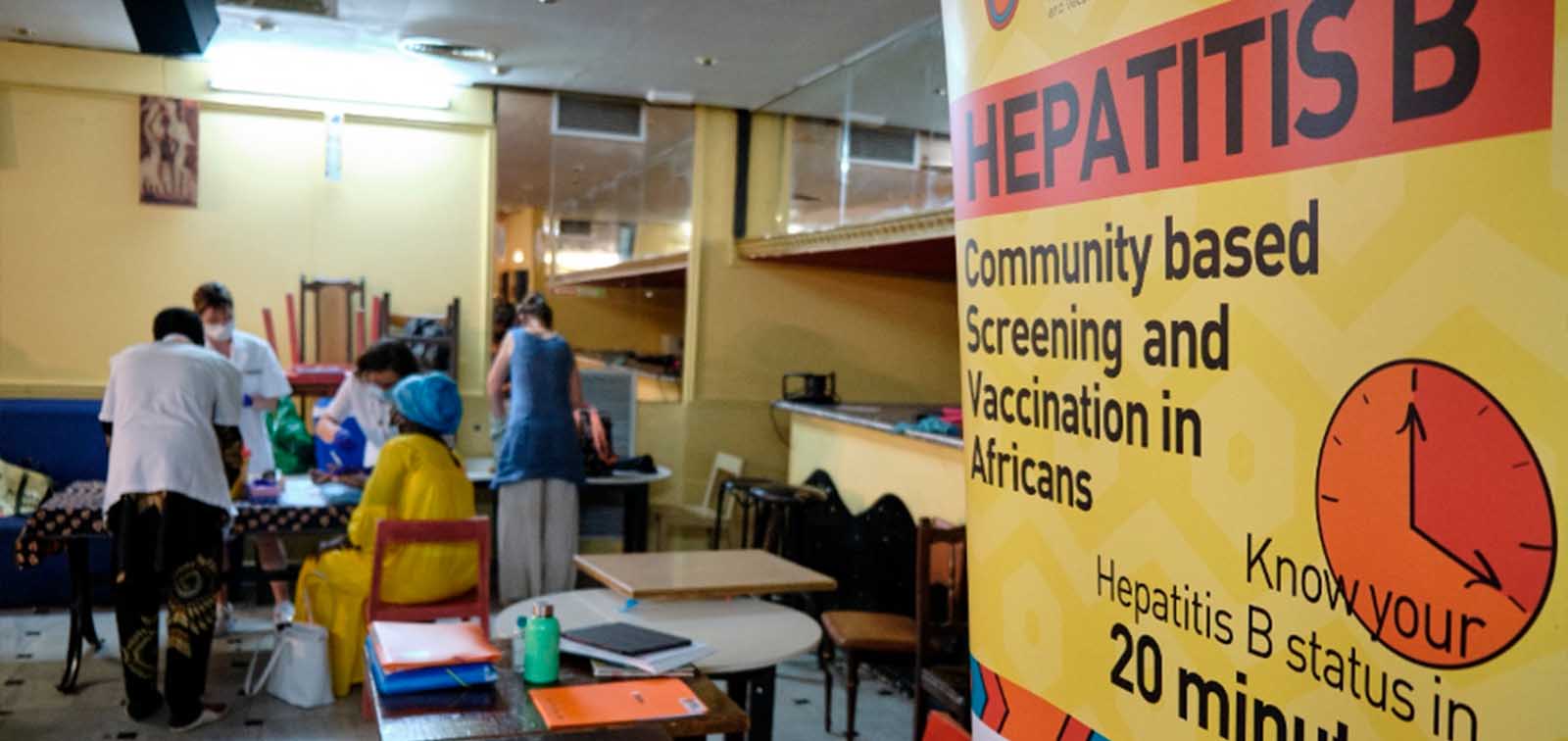
Photo: Jan Pilarcik
The objective of this study is to use point-of-care diagnostics in community and faith-based settings to identify and link to care African (Ghanaian and Senegalese who are living in the greater Barcelona area) migrants living with HBV. Specifically, this pilot study utilizes a novel rapid diagnostic test to screen for HBsAg, the dried plasma spot testing method to collect blood samples and transport them to the laboratory, and will offer decentralized vaccination when appropriate for those who do not already have immunity.
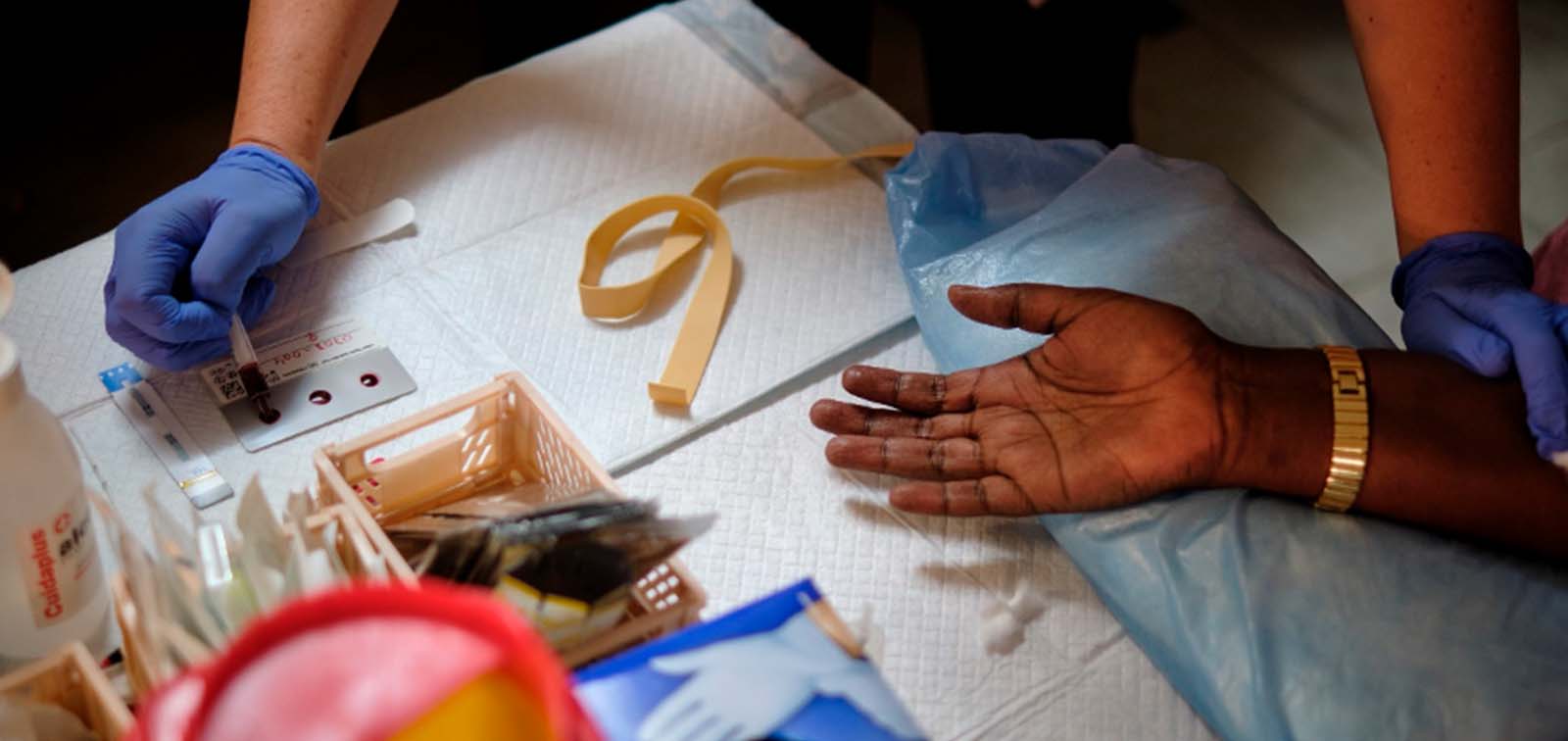
Photo: Jan Pilarcik
Participants are screened in community centers on a pre-determined day arranged through community health agents. Before the screening process, an information session on HBV is provided by the community health agents, including the use of the HeparJoc interactive tool co-created with migrant populations.
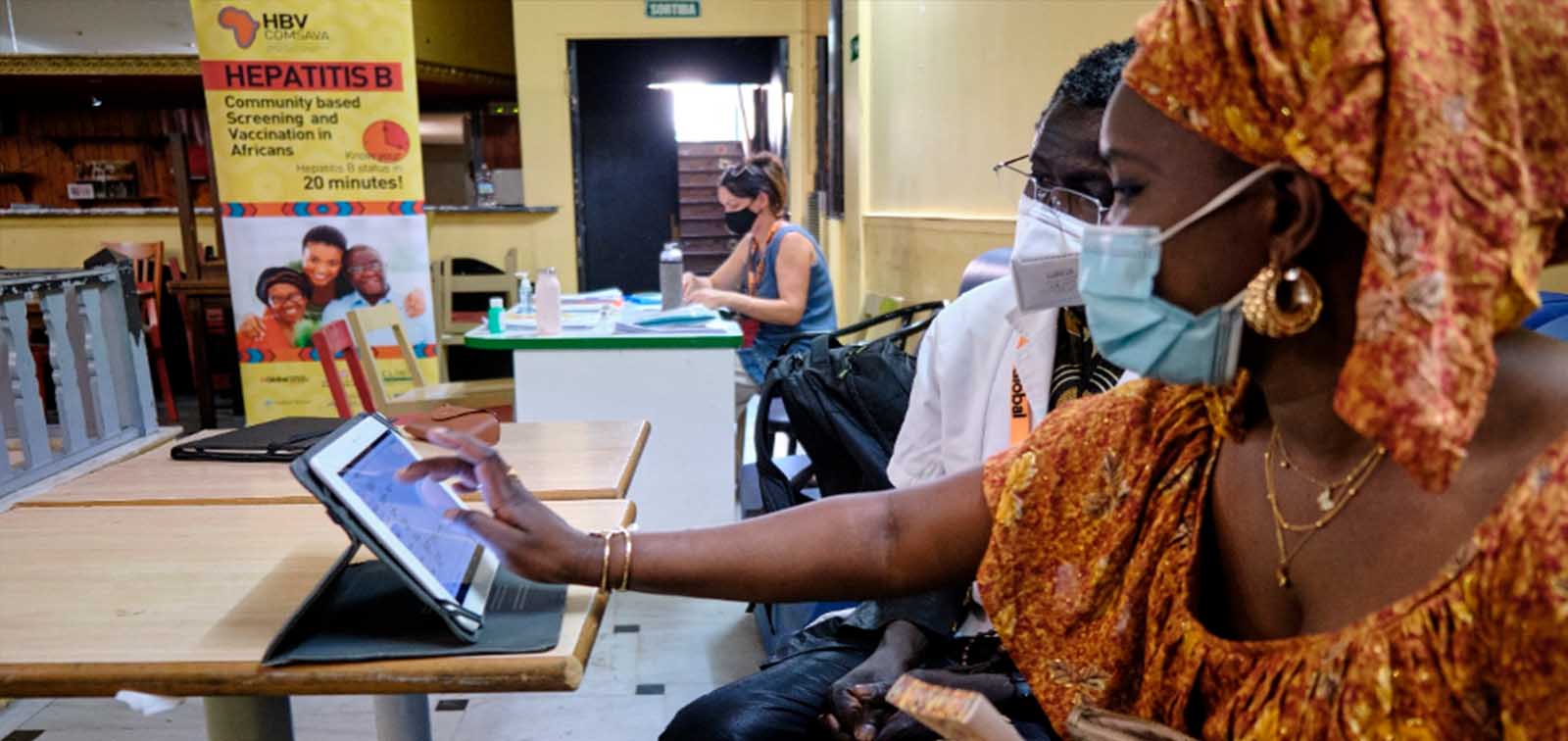
Photo: Jan Pilarcik
Positive cases are provided with referrals to one of the two collaborating university hospitals in Barcelona during this first visit, irrespective of their viral load, for confirmation of infection and treatment initiation if applicable. Negative cases are provided their results during a second visit on average three weeks after the initial screening. Those who are negative and with no resolved past infection are offered the first-dose of the HBV vaccine in situ, with a referral for the subsequent doses at their corresponding primary care centers.
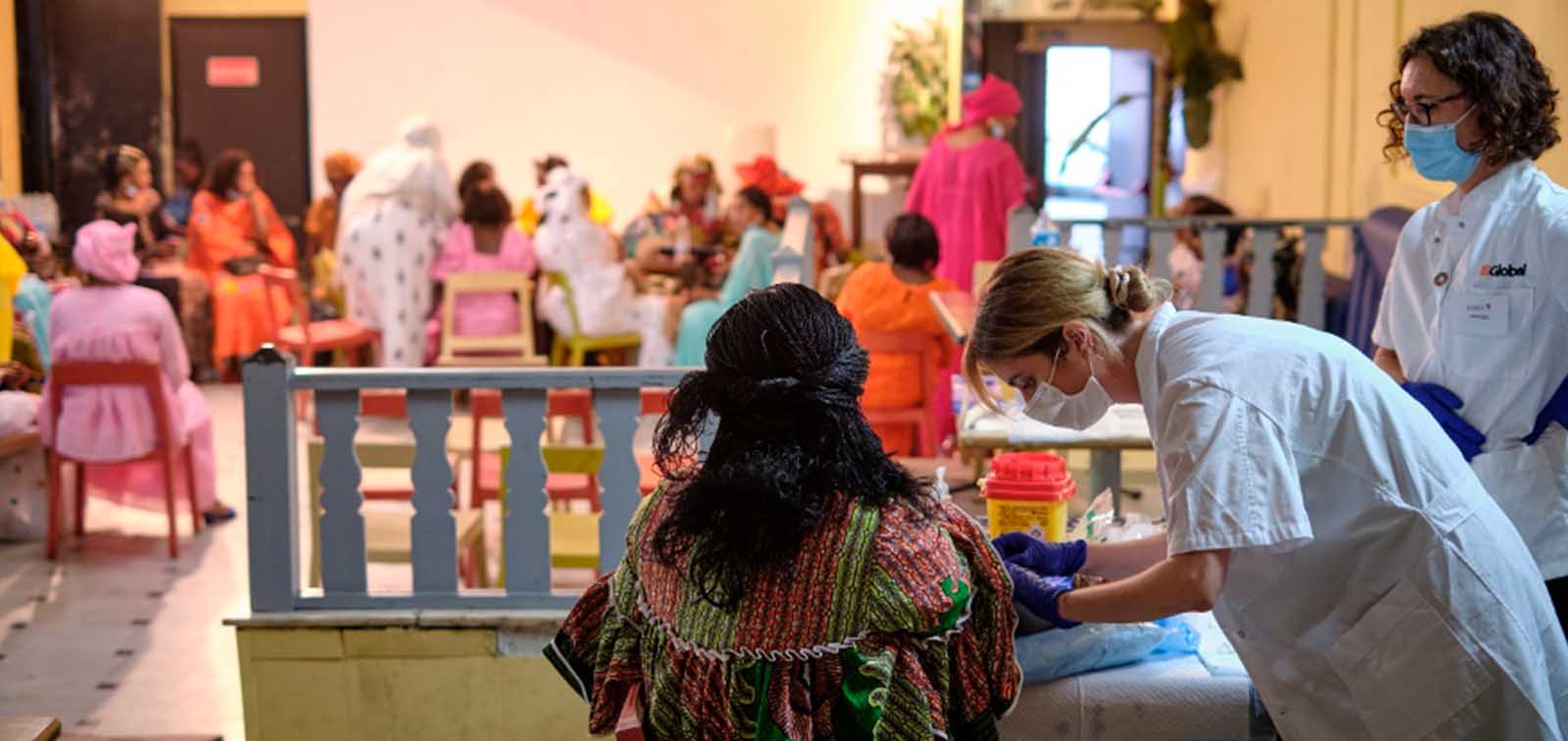
Photo: Jan Pilarcik
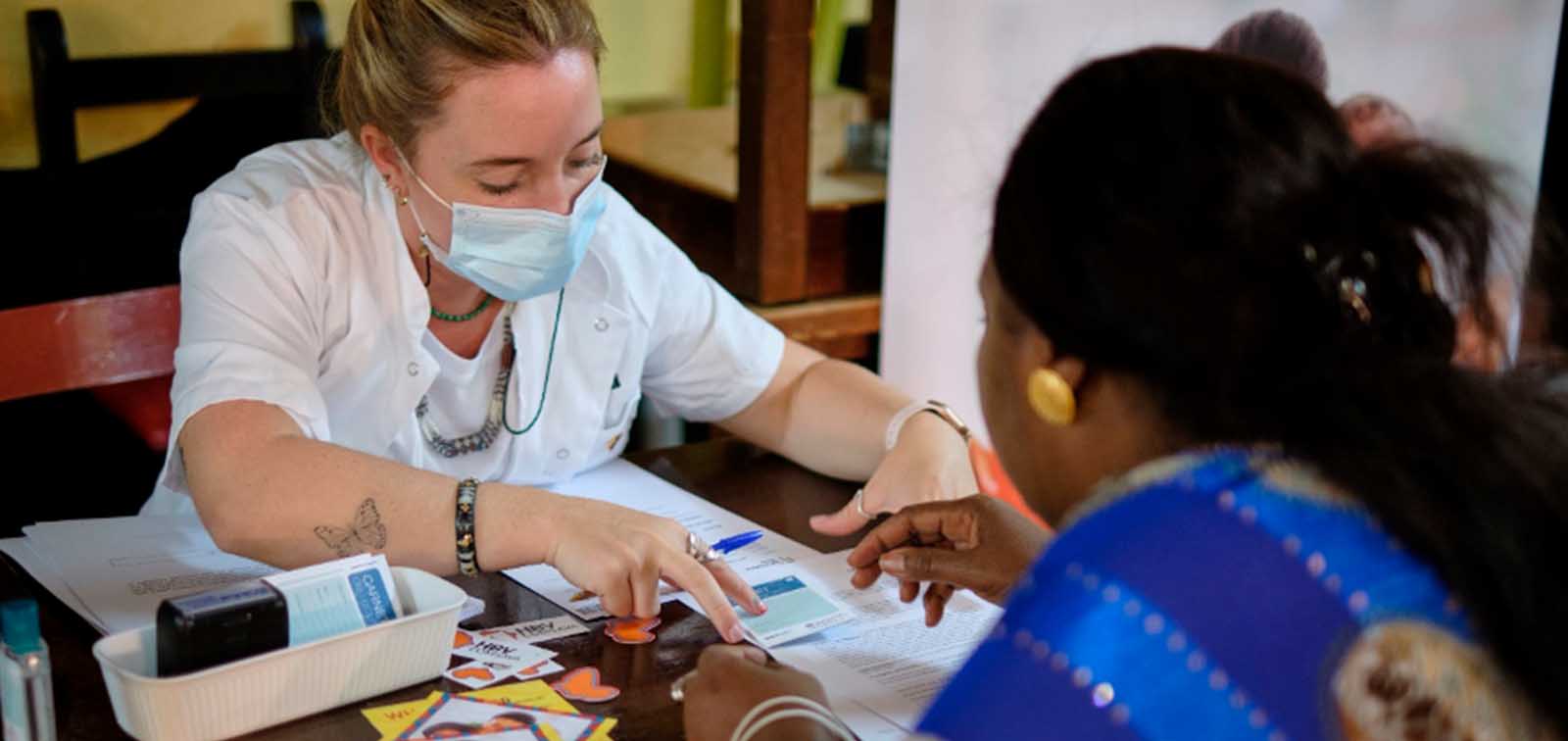
Photo: Jan Pilarcik
The project was launched in November 2020 and is led by ISGlobal in collaboration with west African community members, Hospital Clínic de Barcelona, Hospital Universitari Vall d'Hebron, the Health Department of the Generalitat de Catalunya, the Public Health Agency of Barcelona, and the Microbiology Department of the Vall d'Hebron Research Institute (VHIR).
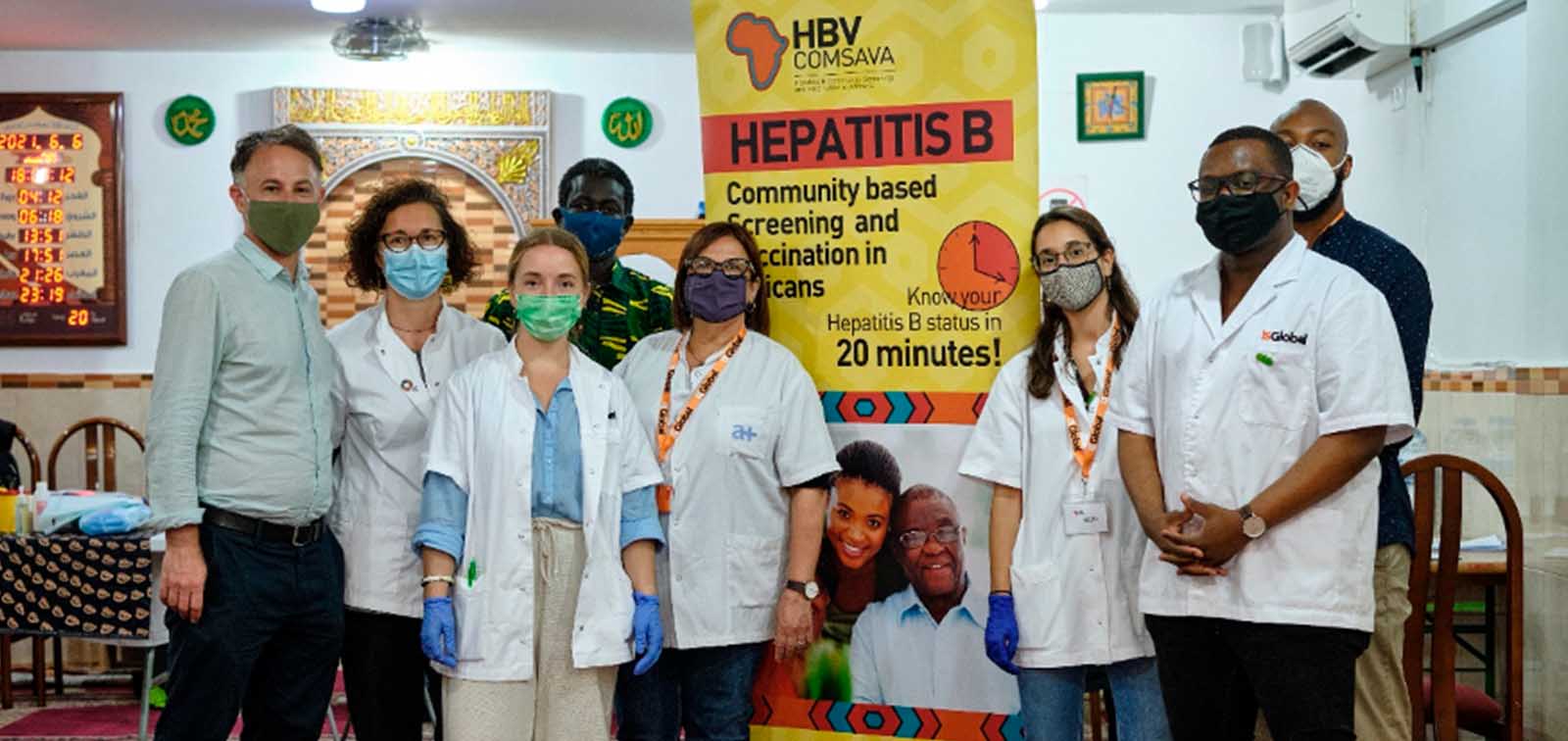
Photo: Jan Pilarcik
Blog posts
Published papers
Picchio, CA., Nomah, DK., Araujo, SG. et al. A novel model of care for simplified testing of HBV in African communities during the COVID-19 pandemic in Spain. Sci Rep 11, 17063 (2021). https://www.nature.com/articles/s41598-021-96350-3.
Published abstracts
- Picchio CA, Fernández E, Araujo SG, et al. Decentralized HBV vaccination in west African community centres in greater Barcelona, Spain, to accelerate viral hepatitis elimination: preliminary data from the HBV-COMSAVA model of care. Conference on Liver Diseases in Africa (COLDA), virtual (2021).
- Picchio CA, Nomah DK, Rando-Segura A et al. HBV-COMSAVA: Preliminary results from a novel community-based hepatitis B screening and linkage to care programme for west African migrants in greater Barcelona, Spain. Global Hepatitis Summit, Taipei [Hybrid due to COVID-19] (2021).
- Picchio CA, Nomah DK, Rando-Segura A et al. Simplifiación del cribado de hepatitis B en Cataluña en población migrante procedente de África occidental: datos preliminares del modelo de cuidado HBV-COMSAVA. Asociación Española del Estudio del Higado (AAEH) Congreso, Madrid (2021).
- Picchio CA, Buti M, Kwakye Nomah D, Villota M, Lens S, Mandas M, Majó X, Colom J, Lazarus JV. Eliminating hepatitis B virus infection in west African migrants in Barcelona: a community-based testing and vaccination model of care to link patients to liver specialists. International Viral Hepatitis Elimination Meeting (IVHEM), Amsterdam [Virtual due to COVID-19] (2020).
- Picchio CA, Kwakye Nomah D, Lazarus JV. HBV awareness and self-reported testing and vaccination in Ghanaian migrants living in the greater Barcelona area participating in a community-based intervention. Conference on Liver Diseases in Africa (COLDA), Dakar [Virtual due to COVID-19] (2020).
Nuestro equipo
Coordinator
-
 Jeffrey Lazarus Head of the Public Health Liver Group
Jeffrey Lazarus Head of the Public Health Liver Group
ISGlobal Team
-
 Camila Picchio Investigadora postdoctoral
Camila Picchio Investigadora postdoctoral -
 Silvia Gómez Project Manager and Researcher
Silvia Gómez Project Manager and Researcher




